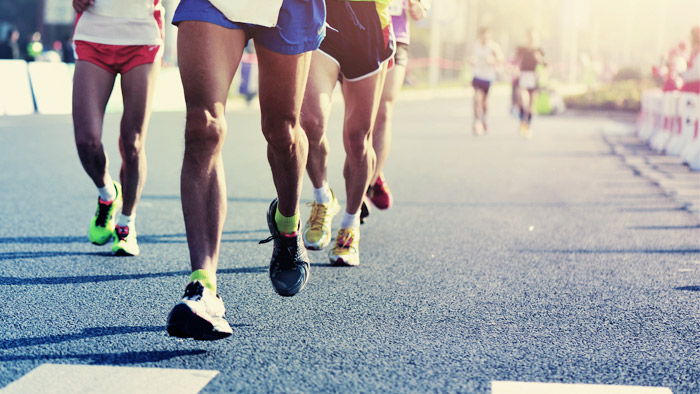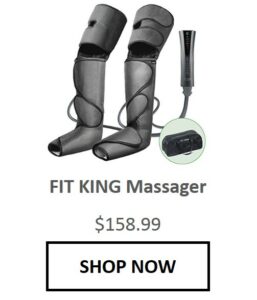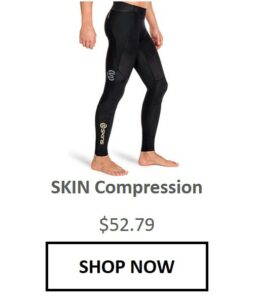
15 Sep 10 Tips To Recover Right During Marathon Training
Training for a marathon is harsh on your body. Specially first timers could see it as ruthless act of cruelty.
And it is.
Your body goes through much more than what you think, and your muscles in particular pay a high price during this merciless regime.
When we think about a training plan for a marathon we tend to focus on the training part, and we pay little -or no- attention to the recovery part.
But reality is that recovery should be as important as the training.
Luckily there are things that can help decrease recovery time and increase recovery efficacy at the same time. Sometimes you might think you’re well recovered but your body is not. This is when you need to be cautious.
When you train for a marathon, these are 10 tips that can help recover better and faster, which in turn, will help you perform better.
Before training
1. Stretching
Long distance training needs flexible muscles. The more flexible your muscles are, the more capability your body has to undertake heavier training routines. And it also reduces your chances of getting injured. Make sure to do mild stretching after a slight warm up before your long runs. You can also include a soft stretching after your runs.
2. Get the right fuel
Yes, this is part of your recovery too. If you go out running without the proper amount of fuel (carbs) to produce the energy it needs, it will take longer to recover too. Don’t forget a carb loading meal before your long runs and provide your body with the fuel it needs so you don’t run into energy depletion states while you are running.
Check these 5 carb loading quick meals.
Right after training
3. Cold session
Long runs impact your muscles significantly by causing micro tearing in its fibers; and they need to heal for the next run. A cold session after your runs (cold shower or cold tub) will help manage inflammatory responses and will help your muscles heal and recover faster.
Cold causes ‘vasoconstriction’. This is the narrowing of blood vessels that will causes blood flow to slow, and in consequence, to slow down or block inflammation responses. ‘Cold’ will reduce the leakage of tissue fluid and hence swelling.
Worry not, if you don’t feel like jumping in the ice tub after every run, a cold shower will help. Point the cold water towards your legs in cold temperature for about 8-10 minutes. This will do the trick.
4. Hydration
Fluids are essential in long runs. You should drink at least 500ml of fluids for every 60 minutes of running. Don’t forget that hydration belt. Proper hydration means getting the right amount of water before, during, and after exercise as it regulates your body temperature and help transport nutrients to give you energy and keep you healthy.
5. Protein
Long runs have a significant impact on muscles by causing micro tearing in its fibers, which will need to properly heal for the next run. Protein is the substance responsible for building and repairing it. Your body does not store protein. In other words, there is no protein reservoir in your body to draw on when it needs new supply. This is why it is so important that your protein intake is well distributed throughout the day, but with special emphasis after workouts. This is when protein synthesis is at its peak.
6. Compression
Your muscles will thank compression therapy after your runs. Compression leggings and socks can help keep inflammation in check (great vasoconstriction effect), and at the same time they will help deliver more oxygen-filled blood to your muscles.
The SKIN A400 compression is a piece of equipment providing tight and firm compression in a way that will aid tremendously in your post run recovery. They feel really good after the run.
7. More Protein
Protein intake is essential immediately after your workout (Whey protein for fast absorption) when protein synthesis is at its peak. As mentioned above, it helps repair and rebuild muscle tissue. But your overall daily consumption is critical too. You need to make sure protein is consumed throughout the day so your overall daily consumption is what you need.
How much protein do you need on a daily basis as a runner? You can read Exactly how much protein do I need as a runner.
Taking Casein protein (slow absorption) before going to bed can be a good idea on marathon training routines.
8. Rest
This is obvious, but sometimes overlooked. Resting is as important as the workout itself. Your muscles need to heal and recover, and resting will get you there. Marathon training is highly exhausting on your muscles.
Check out these 7 Products to make your recovery more pleasant
9. Massage
Gently massage on your muscles (preferably at night) can be of great benefit for your recovery. A massage not only feels good, but also helps reduce pain and aids muscle recovery. It can ease inflammation, improves blood flow and reduces muscle tightness.
This portable Recoup Fitness Cold Massager is super useful for post workout recovery that improves circulation, mobility, and reducing inflammation.
10. Nutrition
Last but not least, your overall nutrition during marathon training is KEY. Macro nutrients (Carbs, proteins) need to be at the top of the list, but micro nutrients (vitamins and minerals) need to also complement this. Your body goes through a lot during the regime, and you need to replenish and provide your body with the right nutritional foundation so it functions at its peak.
What foods should be at the top of the list when training for a marathon? Read the 8 Super foods every runner should take
Running Essentials





Sorry, the comment form is closed at this time.